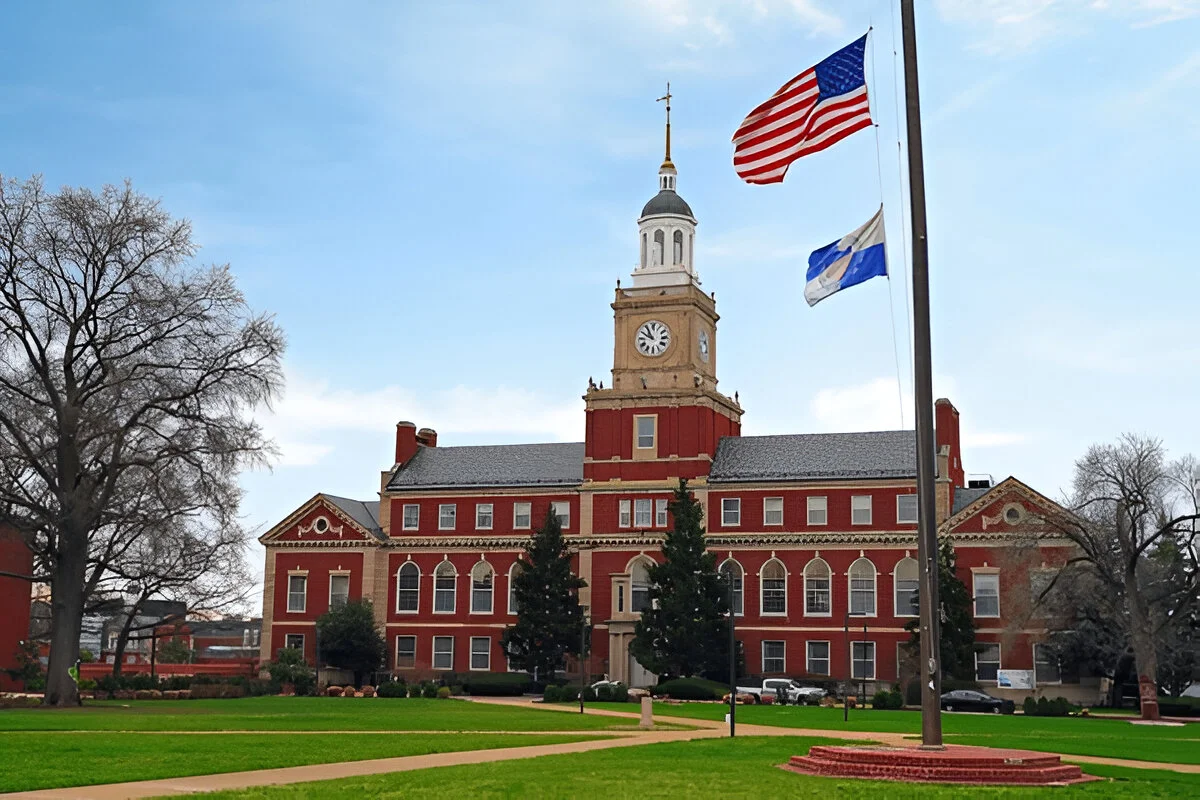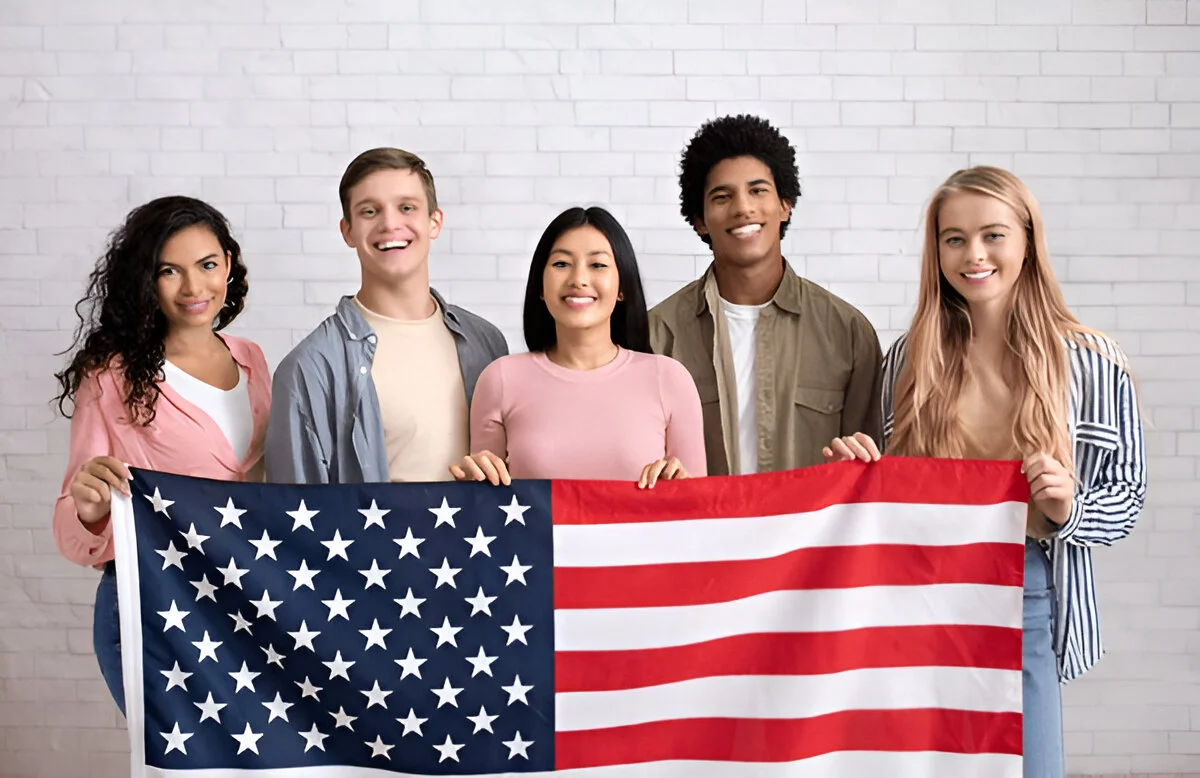
About the United States
The US is one of the most popular places for foreign students to study because it has so many academic programs and universities that are among the best in the world. People around the world admire the US's rich culture, top-notch schools, and cutting-edge study facilities. The US has more than 4,000 colleges and universities, including public and private universities, liberal arts colleges, and specialised schools.
People from all over the world come to the US to be able to study however they want, be creative, and work with top experts in their areas. The US is a great place to go to college because of schools like Harvard, Stanford, MIT, and Yale that are known around the world for being among the best.
Why Study in the US?
- Best Colleges and Universities in the World: The US has one of the best education systems in the world, and many of its colleges are always ranked in the top 100. Schools like Harvard, Stanford, and the Massachusetts Institute of Technology (MIT) are known for having some of the best education programs in the world.
- Wide range of Programs: Universities in the US have a huge range of majors and classes, from arts and humanities to engineering and computer science. You can change your degree to fit your needs and job goals.
- Research and new ideas: The US is a centre for new ideas and cutting-edge study. Students can use study facilities that are among the best in the world and work on innovative projects, often with the help of top businesses and groups.
- World-wide recognition: A degree from a US university is recognised all over the world. Employers all over the world respect the critical thinking, problem-solving, and leadership skills that are emphasised in US degrees.
- A diverse group of students: There are students from all over the world in the US, which makes it a varied and welcoming place to learn. Students can learn new things and connect with friends from different backgrounds because of this diversity.
- System of flexible education: The US school system lets students choose from a variety of courses. During the first two years of college, students can try out different areas before choosing a major. Postgraduate students can also make changes to their plans.
- Job Opportunities After Study: Optional Practical Training (OPT) in the US lets foreign students work for up to 12 months (or 36 months for STEM graduates) after they finish their degree. This helps them get work experience that is useful in the US job market.
- Lively Campus Life: Universities in the US offer a full experience with sports teams, clubs, and organisations that help students learn how to get along with others and be a leader outside of class.
Steps to Apply to an American College
- Look into Colleges and Courses: Look into universities and programs that offer the subjects and job paths you want to pursue. Think about things like the school's location, tuition costs, resources, and scholarship opportunities.
- Check the requirements to enter: Check the requirements for getting into the colleges you're interested in. Each school has its own standards, such as academic credentials, scores on standardised tests, and language skills.
- Take Standardized Tests: As part of the application process, most colleges in the US need scores on standardised tests. The SAT and ACT are two common tests for college students. The GRE or the GMAT is needed for higher school. To show that you can talk and write English well if you're not a native speaker, take the TOEFL or IELTS.
- Prepare Required Documents: Get your transcripts, letters of reference, personal statement, and any other papers the university asks for.
- Fill out an online application: You can apply to colleges and universities online through their own websites or through centralised systems like the Common Application (for first-year students). Send in your application before the due dates.
- Payment of application fees: Pay the application fee. Depending on the school, this fee is usually between $50 and $100 per registration.
- Get an offer letter: Once your application is reviewed, if you are accepted, you will receive an acceptance letter from the school.
- Get a Student Visa: Fill out the DS-160 form and go to an interview at the US office closest to you to apply for an F-1 Student Visa once you have your acceptance letter.
- Get ready for arrival: Before going to the US, make sure you have a place to stay, health insurance, and other things you'll need.
Eligibility Criteria to Study in the US
- Academic requirements: For undergraduate classes, applicants must have finished secondary education, which is the same as 12 years of schooling in the US. To get into a master's or PhD program, you need an appropriate bachelor's degree from a recognised college or university.
-
Scores on standardised tests: You may need to give these things depending on the program:-
The SAT or ACT is needed to get into most college programs.
The GRE or GMAT is needed for many graduate schools. -
Language skills (English): For non-native English speakers:-
TOEFL: A minimum score of 80–100 (varies by university).
IELTS: A score of at least 6.0 to 7.0 (varies by school). - Recommendation letter: You should get academic references from teachers or professors who can speak to your skills and abilities.
- Personal statement: A 500-to-650-word essay explaining why you want to study in the US, what you want to do with your career, and why you chose that specific university or program.
- Proof of finances: Students must show proof that they have enough money to pay for school and live for at least one year.
- Visa: An F-1 Student Visa is what you need to study full-time in the US.
Documents Required to Study in the US
- Academic Transcripts: You will need to show certified copies of your high school diploma, bachelor's degree, and records.
- Scores on standardised tests: The scores from the SAT, ACT, GRE, GMAT, TOEFL, or IELTS tests that the school asks for.
- Personal statement: An in-depth article that explains why you want to study in the US.
- Recommendation letter: Most of the time, two or three notes from professors, teachers, or employers.
- Proof of language skills (English): Score information for the TOEFL or IELTS.
- Proof of finances: Proof that you can pay for school and live costs, like bank records, scholarship letters, or sponsorship forms.
- Passport: A current passport that is good for at least six months after your planned stay in the US.
- Visa: Apply for the F-1 Student Visa once you have the I-20 form from your school.
Living Expenses for Students in the US
The US has a lot of different cities and states, so the cost of living can be very different. For example, it costs more to live in places like New York and San Francisco than in towns and cities in the South and Midwest. International students usually need between $10,000 and $18,000 a year to cover their costs of living. Here's how it works:-
- The cost of housing ranges from $500 to $1,500 per month, based on whether you live on campus or rent privately.
- Food costs $200 to $400 a month, depending on how often you eat out. If you cook at home, it costs less.
- Transportation: $50 to $150 a month, based on the type of public transportation available and the distance of the commute.
- Health insurance costs between $600 and $1,200 a year, but many colleges offer insurance plans to international students.
- Between $500 and $1,000 a year for books and supplies.
- Various: $100 to $200 a month (for fun and personal costs).

Why Choose Nationize Visas for US Study Visa?
Pursuing higher education in the United States is a dream for many students, but the US Study Visa process can be daunting. Nationize Visas ensures that every step of your visa application is smooth, reducing the complexities involved. From ensuring that you meet university admission requirements to helping you prepare essential documents like proof of finances and academic transcripts, our experts provide complete support. We also assist with visa interviews and follow-up queries, ensuring your US Study Visa application is comprehensive and error-free. Let Nationize Visas help you achieve your academic dreams in the United States, with personalized and dedicated visa support.
Benefits of Choosing Nationize Visas for US Study Visa
- Tailored guidance for meeting university and visa requirements, ensuring a streamlined and stress-free application process.
- Expert support for visa interviews, providing mock sessions and preparation to enhance your confidence and success.
- Thorough assistance with documentation, ensuring all academic and financial records meet the US Embassy's requirements.
- Ongoing support for tracking visa application progress and handling follow-up questions from the US authorities.
- Comprehensive financial guidance, including assistance with proving adequate funds for tuition and living expenses.
- Personalized service to ensure you meet the US health insurance and vaccination requirements for international students.
- Expert advice on maintaining your visa status and preparing for any visa extensions or renewals during your studies.
People Also Asked:
What is a USA Study Visa?
A USA Study Visa, often an F-1 Visa, allows international students to study full-time in the United States.
Can I work with a USA Study Visa?
Yes, F-1 Visa holders can work part-time on campus during studies and apply for off-campus employment with special authorization.
What documents are required for a USA Study Visa?
Key documents include Form I-20, financial proof, and a valid passport. Applicants also need to attend a visa interview.
How long is a USA Study Visa valid?
The visa is valid for the course duration and may be extended for further studies or work authorization.
Who is the best consultant for USA Study Visa in India?
Nationize Visas is India’s top choice for USA Study Visas, known for its high success rates and excellent advisory services.


